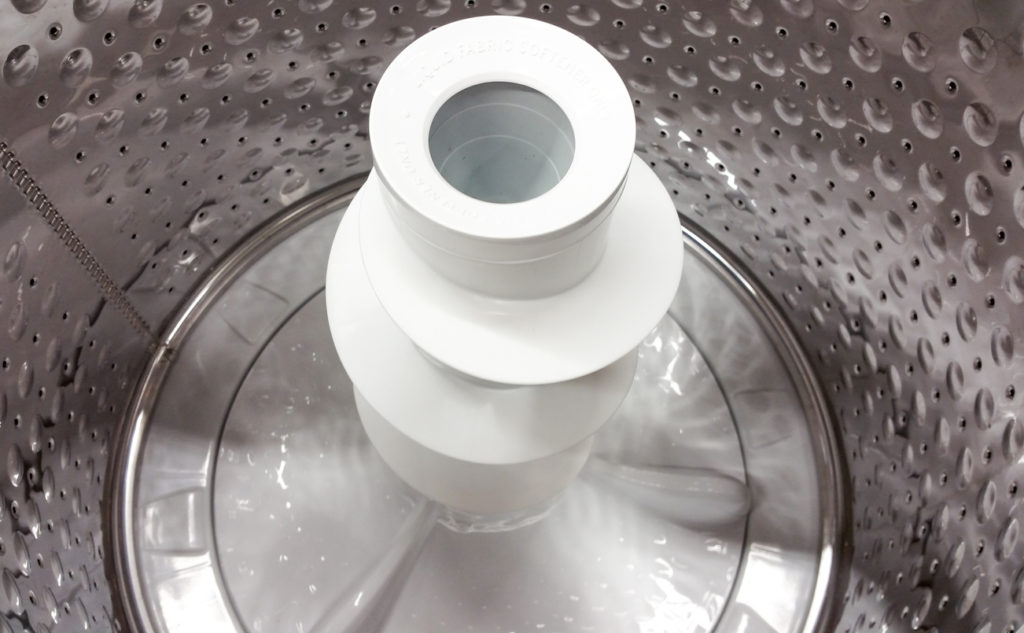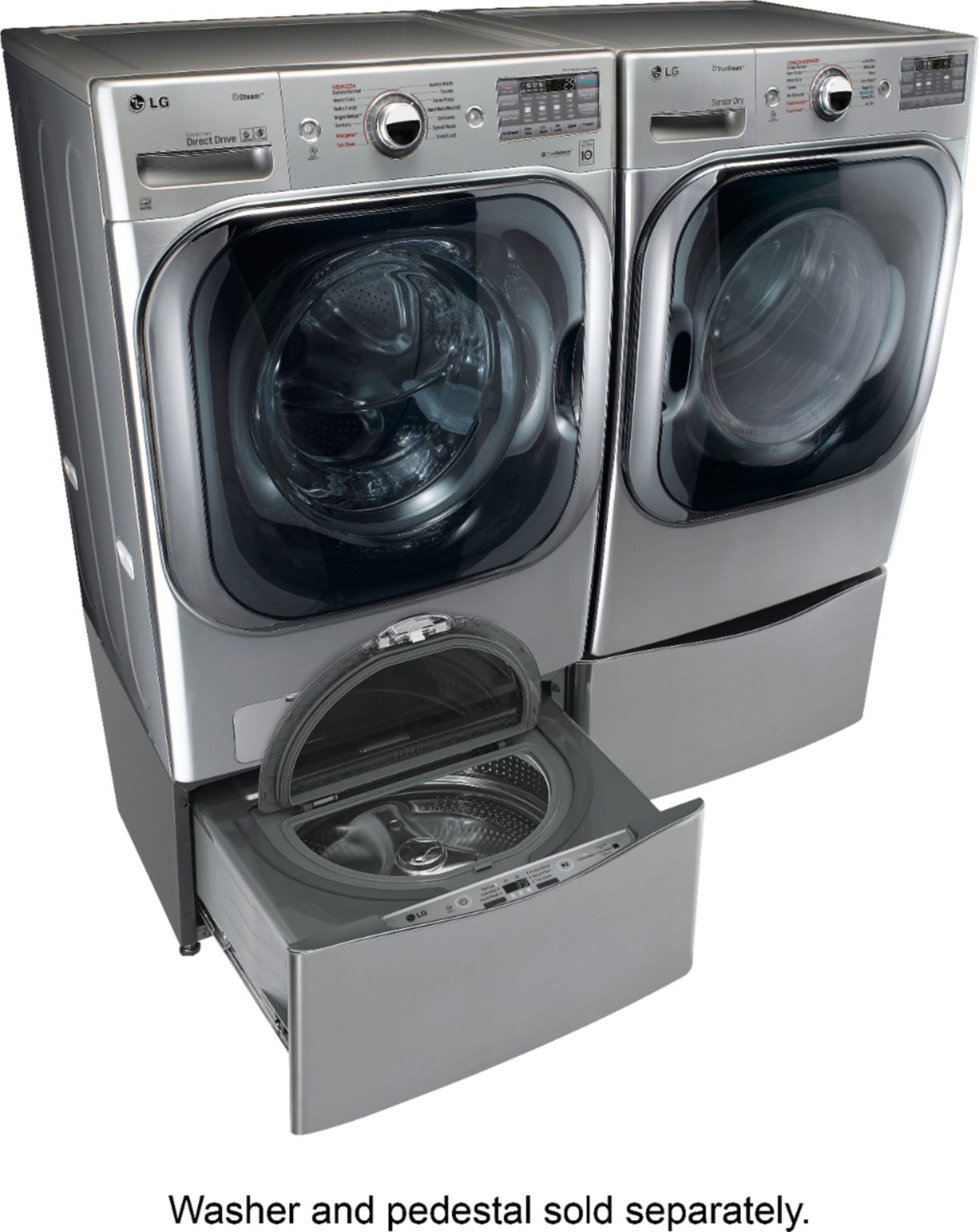If you are in the market for a new washing machine, you’ll need to know the differences between high-efficiency vs. traditional washers to determine the best possible value. The price tag will obviously be an important factor, but you should also consider the amount of energy and water the machine will use to complete a load of laundry. Home appliances have featured yellow and black EnergyGuide labels for decades, but consumers rarely paid much attention to them when energy prices were low. Things have now changed.
Consumers today still expect washing machines to be reliable and durable, but they now want them to use less electricity and do less damage to the environment as well. Appliance manufacturers have answered this call by introducing high-efficiency washing machines, but are they really any better?
High-Efficiency vs Traditional Washers
You will know that the washing machine you are looking at is high efficiency if you notice a blue HE symbol, which manufacturers can only put on machines that use at least 50% less water than traditional models. This reduces energy bills significantly because about 80% of the electricity a washing machine consumes is used to heat water.
High-efficiency washing machines are also kinder to the environment. Using a traditional machine to wash and dry a load of laundry every two days creates almost 1,000 pounds of carbon each year. That makes doing laundry more damaging to the environment than an annual round-trip flight to Europe.
Water, energy and carbon savings would seem to make high-efficiency washing machines the logical choice, but things get a little more complicated once you start digging. Let’s take a look at some buying criteria to see how the high-efficiency vs conventional washers debate plays out.
Price
At first glance, the biggest difference between a high-efficiency washer and a regular washer is the price. High-efficiency washing machines have more advanced technology that makes them more expensive to make, so their price tags are usually a little bit higher. However, take a close look at the EnergyGuide labels to figure out if you will make that money back over the life of the machine. If you have a family and do a lot of laundry, a high-efficiency machine will probably be a far better investment in the long run.
Design

Most high-efficiency washing machines are front-loading, but top-loading models are also available. Traditional washing machines are almost exclusively top-loading.
If you look inside a high-efficiency washing machine, you will notice that there is no agitator. These machines use a rotating tub instead that gently tumbles clothes to get dirt and stains out. Dispensing with the agitator allows high-efficiency machines to have larger capacities than conventional models, which means getting your laundry done will not take as many loads.
This may not amount to much of a benefit if you rarely fill your current machine up to its capacity. High-efficiency machines also tend to have more advanced features and program settings, which means getting the most out of them may involve spending some time reading the owner’s manual.
Washing and Spinning
Since high-efficiency washing machines use much less water and do not have an agitator to move clothes around the tub, they need more time to clean a load of laundry. This may seem like a disadvantage, but there are some benefits. The tumbling action of a high-efficiency machine is gentler to clothes, which may be something to think about if you wash a lot of delicate items. You will make up some of the time you lose during the wash cycle when you put your clothes in the dryer. This is because high-efficiency machines have very fast spin cycles that remove more water, which means your laundry will dry more quickly.
Detergent
If you buy a high-efficiency washer, you will need to make sure that you buy detergent that bears the same HE symbol you saw on the machine. This will tell you that the detergent has been formulated to produce less suds and is appropriate for machines that use less water. Using regular detergent in a high-efficiency machine is like using regular dish soap in a dishwasher. High-efficiency laundry detergent is only a little more expensive than regular detergent, but the small additional cost can add up if you do a lot of laundry.
Maintenance
Maintenance is one area where the high-efficiency washer vs traditional washer debate turns in favor of regular models. High-efficiency washers use less water, which means they do not flush soap and laundry residue away as effectively as traditional machines. To avoid conditions that can allow mildew to grow, the doors of high-efficiency washing machines should always be left slightly open, and the machine cleaning cycle should be run from time to time. You can also cut down on laundry residue by using fabric sheets in the dryer instead of liquid softener in the washer.
Installation
High-efficiency machines tend to be a little larger than conventional models, so you should take some measurements before you buy if you will be putting your new washer in a tight space. Other than that, installing a high-efficiency machine is no different than installing a traditional machine, and stacking models of each type are available. Just connect the water supply and drain pipes, and then plug the machine in.
Life Span
You can expect either a regular or a high-efficiency washing machine to provide you with at least 10 years of reliable service. To make your new washing machine last as long as possible, follow its manufacturer’s recommendations, do not overload it and make sure that it always sits on a flat surface.
High-Efficiency vs. Traditional Washing Machine: Which to Choose?
Buying a washing machine is a major investment, so it only makes sense to consider all the pros and cons before you make a decision. The high-efficiency washer vs traditional washer debate can seem confusing at first, but the two options have more similarities than differences.
High-efficiency washing machines use less water, consume less electricity and emit less carbon than traditional machines, but they cost more to buy, take longer to wash clothes and require more maintenance.
If you don’t do much laundry and like to keep things simple, a traditional washing machine may be all you need. However, if you run your washing machine a lot, are concerned about the environment and like to take advantage of the latest technology, a high-efficiency washing machine could be a perfect choice.
